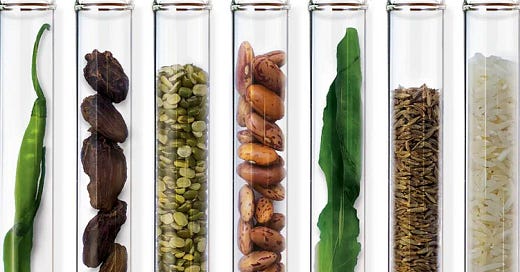I was watching a video by Gordon Ramsey on Masterclass when I discovered that Mushrooms are 90% water. You need to let the heat slowly dehydrate the mushroom before you can make anything useful with it (except if you are making soup). It changed the way I approached mushrooms while cooking, for good.
We in India don’t approach cooking as a science. To us, cooking is the alchemy of ingredients and kaimanam (smell of the hand) to deliver the perfect dish. In Masala Lab, Krish Ashok argues this way of approaching Indian cooking ensures that we lose the art of it. This book is an attempt to scientifically explain why we do what do in India cooking.
The book's first few chapters read like a chemistry textbook where he discussed acids and bases. But I learnt that most things we consume are acidic, at the extreme you have vinegar and at the not-so-extreme tomato. And most things basic are poisonous to humans.
But through this approach, he brings us to a place where he is able to explain how mustard seeds added to hot oil pop and release the acidity of the mustard and turn it into vapour which can then blend effortlessly into the vegetables that we throw into the mustard. It is the reason most south Indian curries start out with mustard being thrown into the hot oil.
He even explains why we garnish the curries with Coriander right at the end rather than cook it along with the dish. The compounds in coriander are destroyed when they undergo heat cycles.
He comes at the book from the standpoint of south Indian cuisine, actually, Tamil cuisine because he himself is Tamil but he takes the effort to go into the entire breadth of Indian cuisine from North to South including Gujrati, Maharashtrian, Bengali, et al.
Whether you love cooking or eating, I think this book is absolutely worth a read and helps one understand what goes on in the chemistry lab that we call the Kitchen when millions of women and men in India go in to cook.




